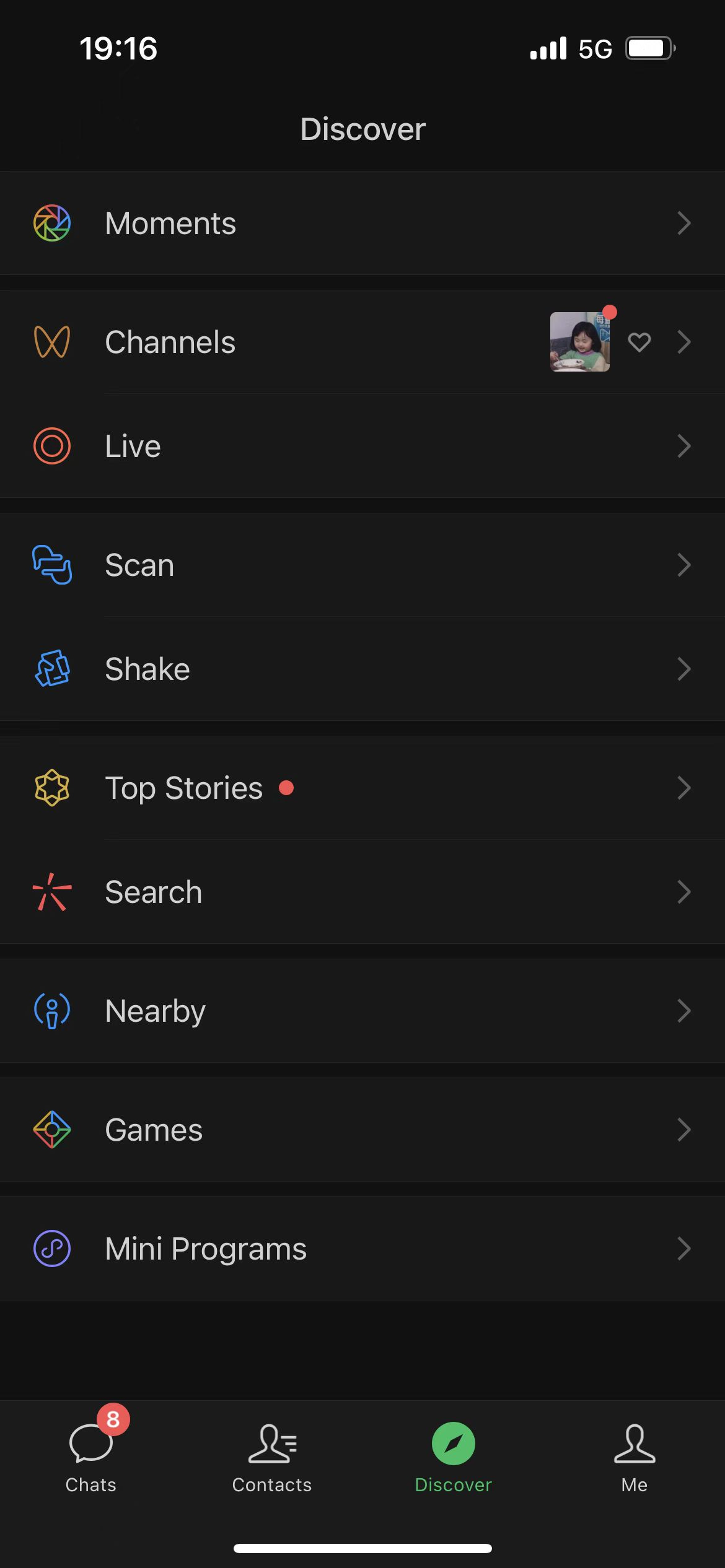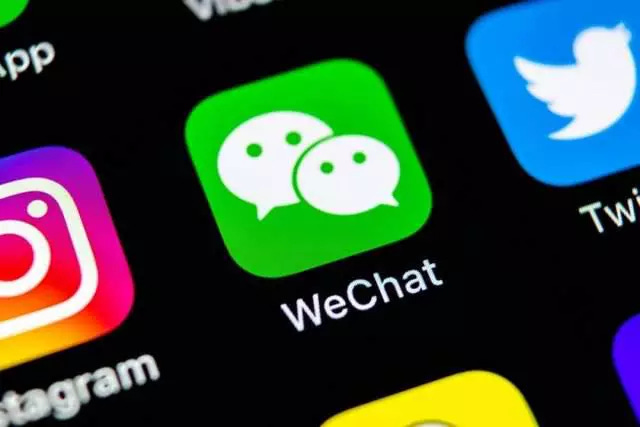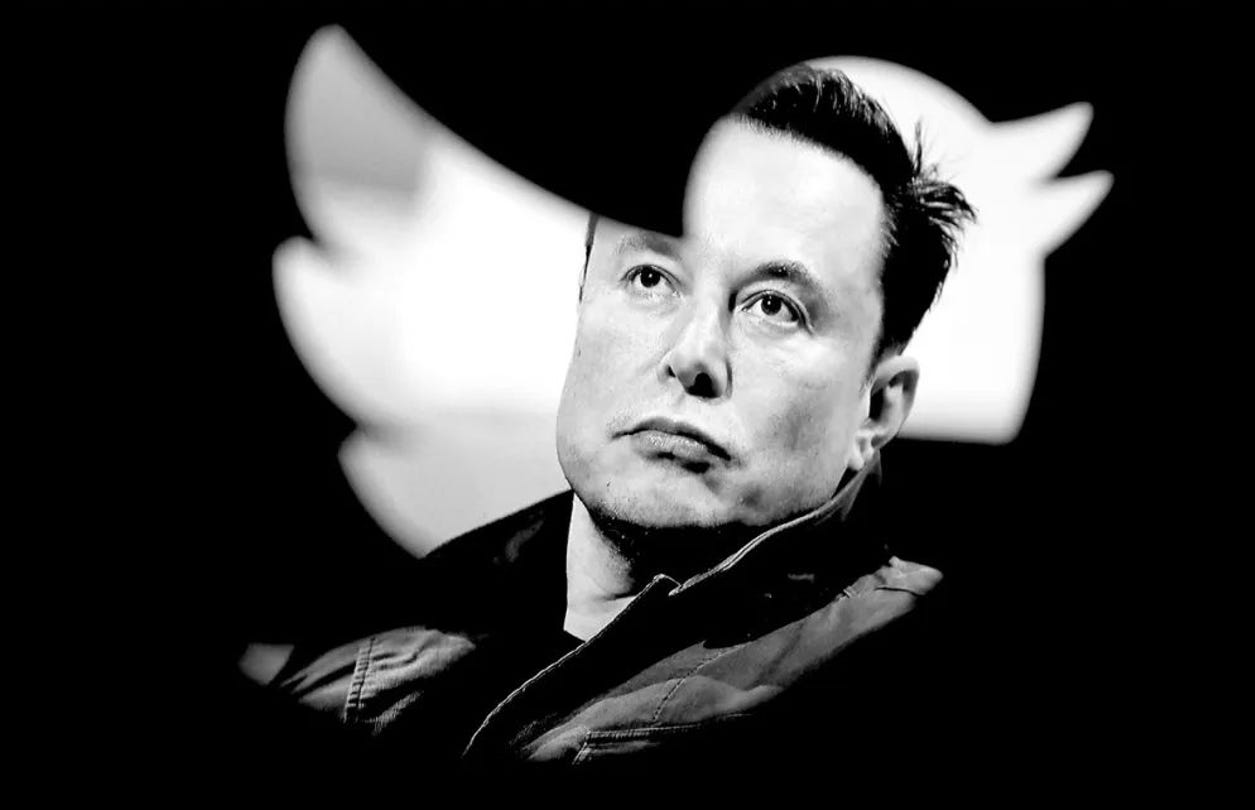Will Elon Musk's “Twitter 2.0” turn into another China's WeChat?
Despite being the cradle of many internationally famous social networking platforms, the US has never had a "super app" like China's WeChat.
This week, your Ginger River is covering the APEC Economic Leaders' Meeting in Bangkok. This is the first time the group has met in person since 2018. Banners for the meeting are easy to find on the streets, and people can feel the energy of the city.
Leaders of the APEC economies issued a declaration and the Bangkok Goals on the Bio-Circular-Green Economy on Saturday. Xinhua published a commentary on the same day saying that the APEC’s long-term blueprint of building an "open, dynamic, resilient and peaceful Asia-Pacific community by 2040" is “highly compatible with China's proposal of building an Asia-Pacific community with a shared future of openness and inclusiveness, innovation-driven growth, greater connectivity, and mutually beneficial cooperation.”
Ginger River believes that the recent G20 summit in Bali, the APEC meetings in Bangkok, and the Qatar World Cup 2022 all seemed like good ways for the world to end a rough year.
Today's post discusses the new Twitter CEO and sole director Elon Musk's vision for “Twitter 2.0.” Musk sent a companywide email to the remaining employees of the social media business on Wednesday, demanding they commit to working “long hours at high intensity” or receive “three months of severance,” if they did not consent to these conditions, or support his vision for “Twitter 2.0”, according to CNBC.
For people in the US and maybe most western countries, online services are scattered in different apps. People do business with clients over emails, hail a taxi on Uber, share their lives on Instagram or Twitter, and the list just goes on. While in China, almost everything can be done on one single app — WeChat. From workplace to social space, from booking flight tickets to paying vendors on street corners, WeChat is the go-to app. And almost everyone got their health code checked on WeChat before entering a public building.
Screenshot of one of WeChat's user interfaces (English version)
It's not that people don't use other apps or there are no other vertical apps in China. It's just that online services are generally more compact, and WeChat is an iconic "app of everything."
Therefore, when Twitter's new owner Elon Musk said, "buying Twitter is an accelerant to creating X, the everything app," many believe Musk got his inspiration from WeChat.
For months, the Tesla and SpaceX CEO has expressed interest in creating his own version of China’s WeChat — a “super app” that does video chats, messaging, streaming and payments — for the rest of the world. At least, that is, once he’s done buying Twitter after months of legal infighting over the $44 billion purchase agreement he signed in April.
Elon Musk’s plans for Twitter may take inspiration from Chinese super apps -- CNBC
Musk may be hinting toward so-called “super apps” which are popular in China and other parts of Asia and pioneered by the likes of Chinese technology giant Tencent.
Chinese app WeChat, run by Tencent, is the biggest super app in the world. Musk previously called WeChat “great” and said there is an opportunity to create an app like that outside of China.
Technically speaking, putting multiple functions in one app is not something hard. The truly tricky part is how to get people actually to use the functions.
Hitherto, Internet giants like Meta and Google have tried to make the super app, but with little success. So the question is, how come there is never a successful "all-round" social media platform like WeChat in the US? What does Musk need to notice when turning Twitter into a super app? Why would he be so determined to take this uphill battle?
The struggle of "super apps" in the US
"Elon Musk is thinking about a super app like WeChat Pay," said Catherine Wood, the founder of ARK Invest at the Web Summit in Lisbon, Portugal, on November 2. She further explained that Twitter might be more like a "digital wallet" in the future.
A few years ago, Facebook founder and CEO Mark Zuckerberg also openly praised WeChat's powerful functions.
Facebook founder Mark Zuckerberg said he regretted not taking note of China’s super-app WeChat sooner after his social media empire announced a shift to private messaging last week amid a privacy crisis, in a move that copies features of China’s dominant social media platform.
“If only I’d listened to your advice four years ago,” Zuckerberg wrote on Facebook on Friday in response to Jessica Lessin, founder of tech media The Information, who highlighted a March 2015 article she wrote that suggested Facebook should learn from WeChat.
Zuckerberg announced last week that Facebook planned to transform itself into a privacy-focused platform. With a focus on private messaging, it would “build more ways for people to interact on top of that, including calls, video chats, groups, stories, businesses, payments, commerce, and ultimately a platform for many other kinds of private services,” according to Zuckerberg’s post on Thursday.
In addition to Facebook, Instagram, and Twitter, other social networking platforms such as LinkedIn and Reddit are also popular in the US. Each has unique features and targets different users. Despite being the cradle of many internationally famous social networking platforms, the US has never had a "super app" like WeChat.
The Global Times special correspondent interviewed people randomly on the street in the US. Some believed that considering the US already got a bunch of mature social networking platforms, Musk's "WeChat plan" might not stand out unless he does something extraordinary.
"Google, Snap, TikTok, Uber and others have also tried to jump on the super app bandwagon, expanding their offerings in an effort to become indispensable to people as they go about their day," the Associated Press commented, pointing out that none have set the world on fire so far.
Why is it so hard to build a successful super app in the US? "The primary reason may be 'the pioneer's curse'," said Wang Xin 王昕, Ph.D adviser of Adverstising School of the Communication University of China, and deputy director of the National Institute of Advertising, in an interview with Global Times.
"The earlier a country or region adopts new technologies, the harder it will be for the place to "accept subsequent life changes led by technologies," Wang explained, adding that as the cradle of the Internet, the US was the first to enjoy the convenience of extensive Internet connectivity, which also "formed relatively fixed user habits." As a result, people would subconsciously reject changing their habits as technologies upgrade, according to Wang.
"Old habits are hard to break, and people in the U.S. are used to using different apps for different activities," said Jasmine Enberg, principal analyst at Insider Intelligence.
Moreover, Wang thinks that the basis on which the Internet-based social service system operates is different in China from that of the US. For example, in the US, people rely on e-mails to communicate with others in the workplace. But China just leapfrogged the era where Internet connectivity is done via computers, and went straight into mobile apps. Therefore, the chatbox of WeChat beats e-mails to become the number one communication tool in the workplace. It also dominates private social networking.
The third reason are the barriers set by other Internet giants already in the game. The Internet-based social service system is developed in the US, with a dominant player in each market segment. These companies dive into different sub-fields and have different business models. There are clear boundaries between their businesses. If one is to build a super app, he must break the current business landscape and rewrite the game.
Musk's move may reshape the competitive landscape
"Twitter has its own strengths. It entered the industry early, and stay focused. So, Twitter is still very influential in the political realm in the US," said Xiang Ligang, director-general of Information Consumption Alliance, when discussing the development of Twitter in an interview with Global Times.
"But compared with Facebook and Instagram, Twitter lags behind in aspects like technological upgrade," said Xiang, adding that judging from the standard of its Chinese counterparts, Twitter's integration capability is far from satisfactory.
In contrast, WeChat's rapid advance in China owes credit to the "social networking plus" strategy. It fostered user habits through social behaviors, and built user stickiness.
Then, by providing information and payment services through social networking, WeChat gradually connected itself to more and more consumption scenarios. In Wang's view, WeChat's accomplishment is not directly related to new functions that its Parent company Tencent has developed. But WeChat captured the pain points in user experience and customer needs. And the product managed to creatively meet the customer needs that were not fully satisfied.
Therefore, Wang doesn't think Twitter should copy WeChat's functions directly. The point is to figure out what needs in the US are not satisfied yet. Otherwise, Twitter's transformation would provide nothing more than a juicy story at the dinner table.
"If a super app does take off in the US, it would be tantamount to having 'babarians at the gate' in the Internet industry, which means the landscape, business divisions, and target users would all be reshuffled," said Wang.
In addition to technologies and the underlying logic, Musk should also take cultural mentality into consideration when he builds the "super app." For example, Both Musk and Zuckerberg extol online payment services, and there're many online payment apps available in the US, but the number of people using the service is quite limited. Many Americans today still prefer checks, because they have doubts over the security of e-payment. Moreover, Americans are more sensitive to financial privacy, and concerned that an "omnipotent" app will expose their information to third parties.
"Transforming Twitter into a WeChat-like super app would be a massive undertaking for Musk," said Enberg in an interview with ABC News, according to Business Insider, "Changing consumer behavior is hard — something that Meta (then Facebook) quickly discovered during its own super app ambitions."
"Twitter probably accelerates X by 3 to 5 years," Musk tweeted in October, "but I could be wrong." CNN also pointed out that the transformation of Twitter would be an "uphill battle."
Paving ways for an ecosystem in the future
As for Musk's intention to buy Twitter, many believe there are political unertones, including restoring former President Donald Trump's banned account. But in a recent tweet, Musk hinted that the ban on Trump's account would not be reversed before U.S. midterms.
According to Financial Times, Musk made efforts to appease nervous advertisers. In a letter entitled "Dear Twitter Advertisers," he wrote, "Twitter obviously cannot become a free-for-all hellscape where anything can be said with no consequences!" Despite Elon Musk’s attempt to hold onto advertisers, brands including L’Oreal, General Motors, and Audi have withdrawn from Twitter in recent days.
Musk first announced his bid to take over Twitter in April, according to Marketing Week, and he also wanted to reduce the reliance on advertising. However, as the billionaire learned more about the platform, his attitude towards advertising seems to be softening.
Advertising has been a major source of revenue for Twitter and most other social networking platforms in the US. In Twitter's second quarter (Q2) financial results released in July, advertising revenue accounted for over 90 percent of Q2's total revenue. In the fiscal year of 2021, the company generated around 4.5 billion U.S. dollars of advertising revenue, accounting for nearly 89 percent of the total sales.
Thus Musk cannot ignore the importance of advertising to Twitter. However, the fierce competition in the industry and the high inflation rate in the U.S. put tremendous pressure on the digital advertising business of social platforms.
"Ad sales figures from the likes of Snap and Meta would suggest that this tightening has begun to take place," said Marketing Week, pointing out that advertisers face a lot of uncertainty in the future.
Wang believes that in addition to explicit political purpose and commercial interests, the greatest value for Musk's takeover is to prepare for the future intelligent ecosystem. In the era of the Internet of Things and intelligent media, Twitter may continually bring companies user data collected from users' social behavior. Meanwhile, Twitter can become a platform where other products from Musk's business empire exchange user information and resources. For example, Twitter can be a default app in the networking of cars and Starlink, the satellite internet constellation operated by SpaceX. In this way, Twitter may become the hub connecting different systems.









Enjoy Bangkok!